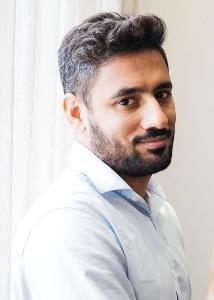 This interview was conducted in 2021.
This interview was conducted in 2021.
Q1: Describe your current position/role.
I'm working as senior Engineer at Roche Diagnostics Intl, working towards the development of a pre-analytical system for the molecular diagnostics lab.
Q2: What are one or two of your proudest professional accomplishments?
The launch of the cobas prime Pre-Analytical System in Q2 2020. I had worked on this project over a 3 years period in different roles and it was one of the best project teams of my career.
Q3: What is the biggest challenge you face as a Systems Engineer?
Defining the interfaces between different modules of a complex system, especially if the modules are developed by different vendors.
Q4: What advice do you have for individuals starting their career as a Systems Engineer?
System engineering covers many areas in the development process. In order to become a system engineer, one should try to rotate and experience as many areas as possible.
Q5: How do you continue to learn about SE? What professional development activities do you do?
After the SEP certification, I joined an online masters program for model-based system engineering by MIT. This course helped me to further develop my understanding of system engineering.
Q6: What are the next career goals you want to achieve?
After working on diagnostics system development for 6 years, my next career step is to become a lead system engineer (LSE).
Q7: What are some of your hobbies/interests outside of work?
Living in Switzerland gave me a chance to go often for Hiking, Climbing and Snowshoe hiking. Besides that, I’m training often at a crossfit box.
Q8: Why did you decide to get the SEP certification?
I received a free copy of the certification book from my colleague. Once I started reading it for fun, I realised that my understanding of the system development process was very limited. The book got me hooked towards system engineering and I decided to receive my SEP certification in 2018.
Q9: How does the SEP certification impact your professional career?
SEP certification helps me to see the bigger picture of the development process throughout the life cycle of a system. While defining the requirements, testing them and finally fixing the defects, I try to remember how each of my action will impact the customer throughout the life cycle of the system.
Q10: What has surprised you in the past five years related to systems engineering?
The thing that surprised me the most is System engineering is such a vast field, covering so many areas of engineering. It requires an extensive amount of experience to fully comprehend the boundaries of the field.
Q11: What job titles have you had other than “Systems Engineer?”
In my career of 6 years at Roche diagnostics, I’ve always worked in the system development field. I started as an intern, later became a development engineer and I’ve been a senior engineer for 2 years.